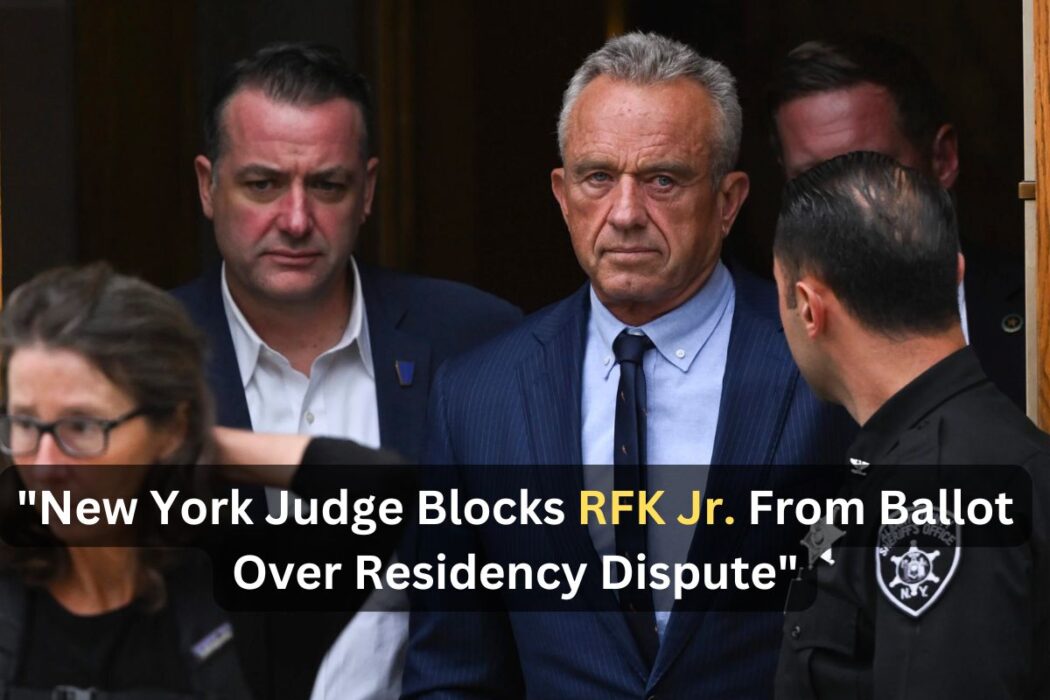In a significant development ahead of the upcoming election, a New York judge has ruled to block Robert F. Kennedy Jr. from appearing on the state’s ballot due to a challenge to his residency status. The decision comes after a legal dispute over whether Kennedy, a well-known political figure and environmental activist, meets the state’s residency requirements to qualify as a candidate.
The case centered around the question of whether Kennedy had maintained sufficient ties to New York, where he has long been associated, or if his primary residence had shifted elsewhere, disqualifying him from the ballot. Kennedy’s opponents argued that he had not met the state’s stringent residency criteria, which require a candidate to have lived in New York for a specified period before an election.
Kennedy’s legal team contended that his extensive time spent traveling and working outside of New York did not diminish his residency status. However, the judge ultimately sided with the challengers, citing evidence that suggested Kennedy’s primary residence was not in New York during the required time frame.
The ruling has significant implications for Kennedy’s campaign and the broader political landscape, as he had been considered a strong contender in the race. Kennedy’s supporters have expressed disappointment with the decision, while his opponents have hailed it as a victory for the integrity of the state’s electoral process.
Kennedy is expected to appeal the decision, but the ruling adds a layer of complexity to his campaign as the election date approaches. This legal battle underscores the importance of residency requirements in electoral politics and highlights the challenges candidates face in navigating these rules.

